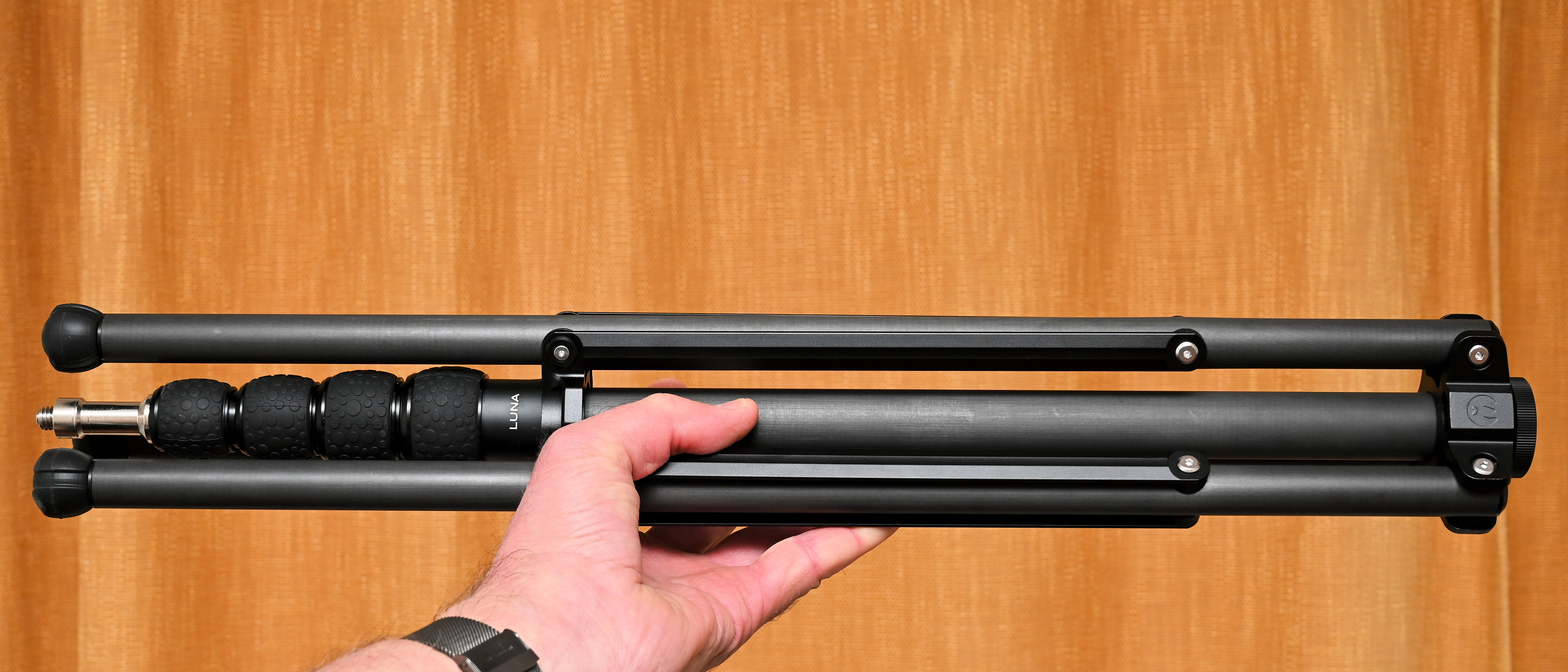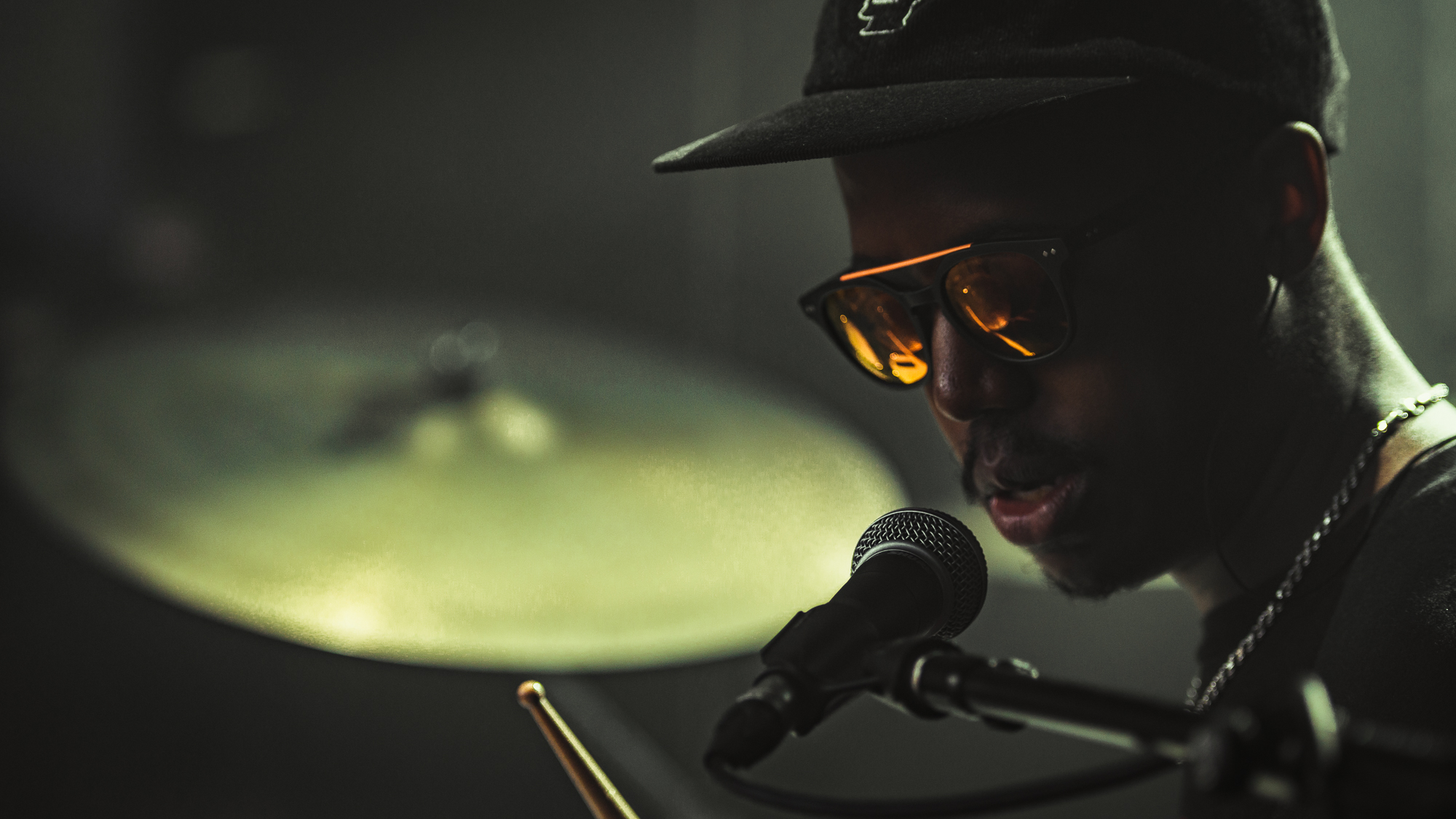
Back in March 2020, I was prepping to leave on tour for the year – I was a tour manager for a number of acts around the world. We all know what happened next, and how that impacted an industry that relies on travel and mass gatherings.
Fast forward a few months: after lots of cycling and tidying my flat, I decided that making banana bread wasn’t for me. So I took my Pentax K-S2 out of a drawer. I had bought the camera a few years previously, with the intention of learning how to shoot then taking it on tour. However, it mostly stayed on the bus.
• Read more: Best Pentax cameras
I began studying the camera then moved onto Lightroom and Photoshop, before researching master painters, color theory, composition and lighting. That, coupled with practicing my photography on everything from people (when restrictions allowed) to products, landscapes and night street scenes, led to my first exhibition, in London about a year later.
I continue to shoot everything from properties to products, and from portraits to event parties, using techniques from one discipline and carrying them across to another.
Top tips for shooting live music
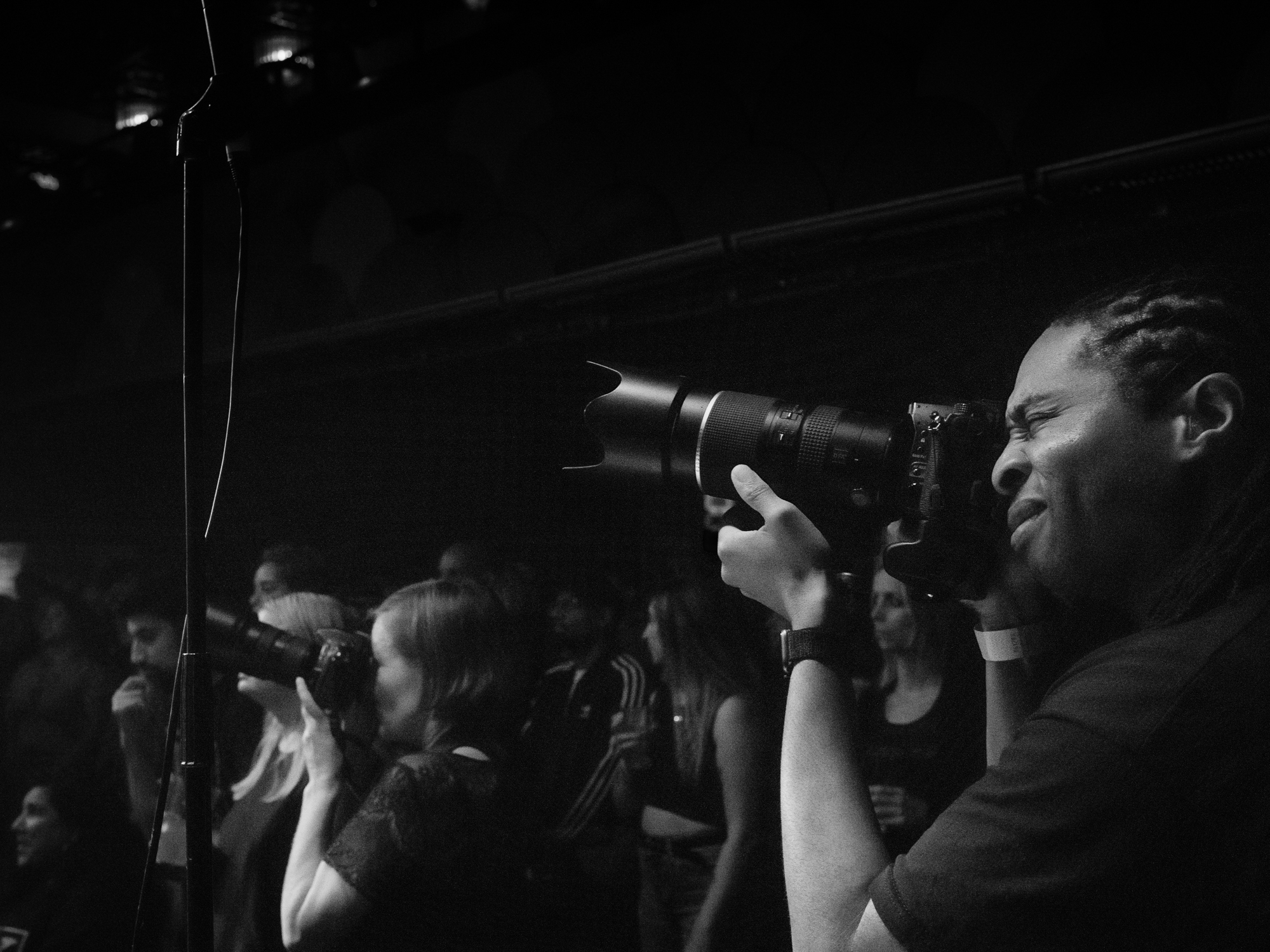
1) Shooting in low light
Get to know your camera. Know how high you are prepared to take your ISO settings before it starts to affect the images. Live music lighting can change rapidly, so consider stopping down a few stops with exposure compensation – but leave yourself with a stop on the aperture so that you can close it down if you need more depth in a shot.
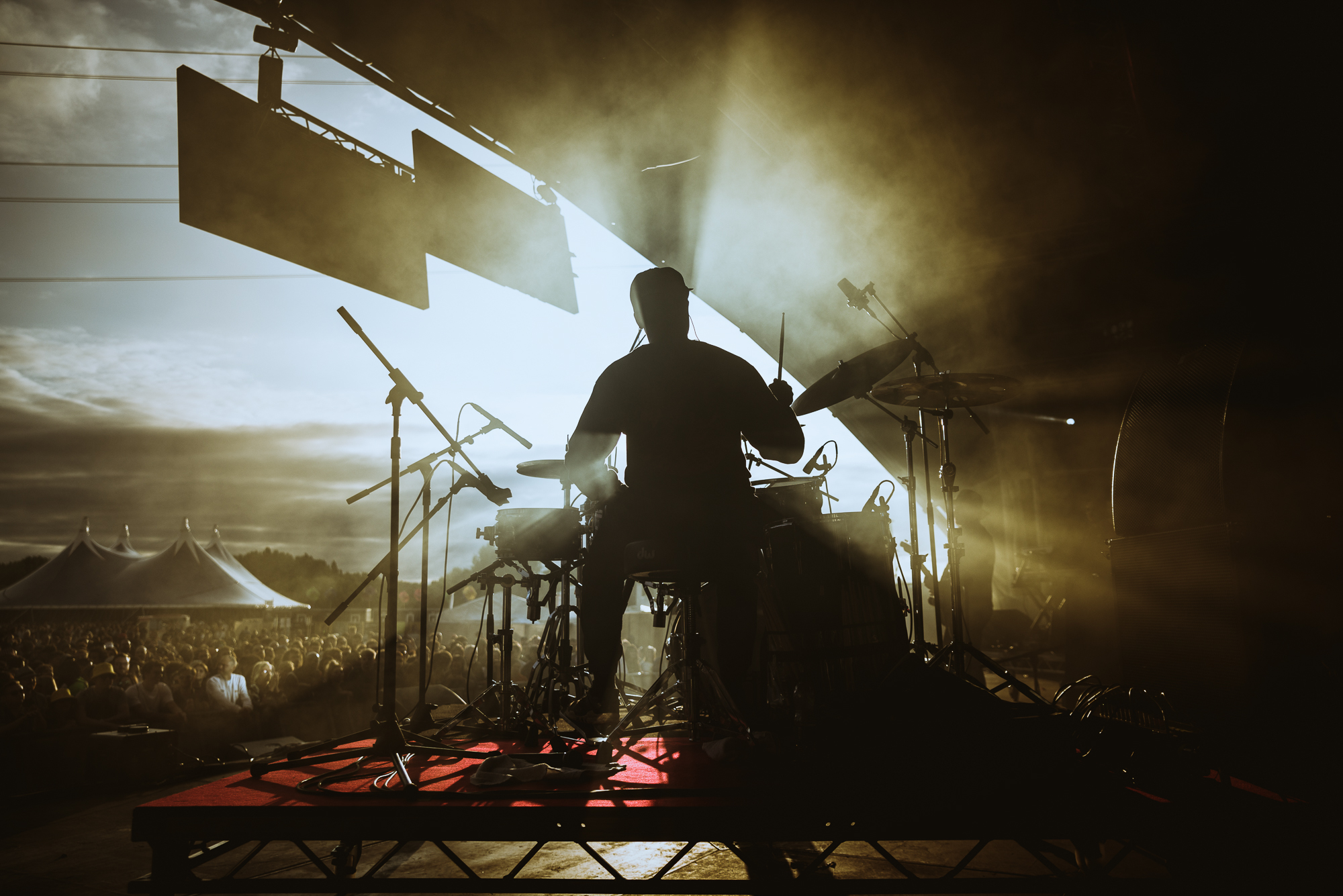
2) Using telephoto lenses at gigs
I don’t believe that gear alone makes the picture, but having the right kit can assist in getting the best picture possible. I now use two Pentax K-1s for a gig, with a 15-30mm lens on one and a 70-200mm on the other. That, plus moving my feet, gives me a good range of focal lengths. Depending on the size of the space and the length of time I have, I may also grab my 24-70mm as well as, or instead of, the 15-30mm.
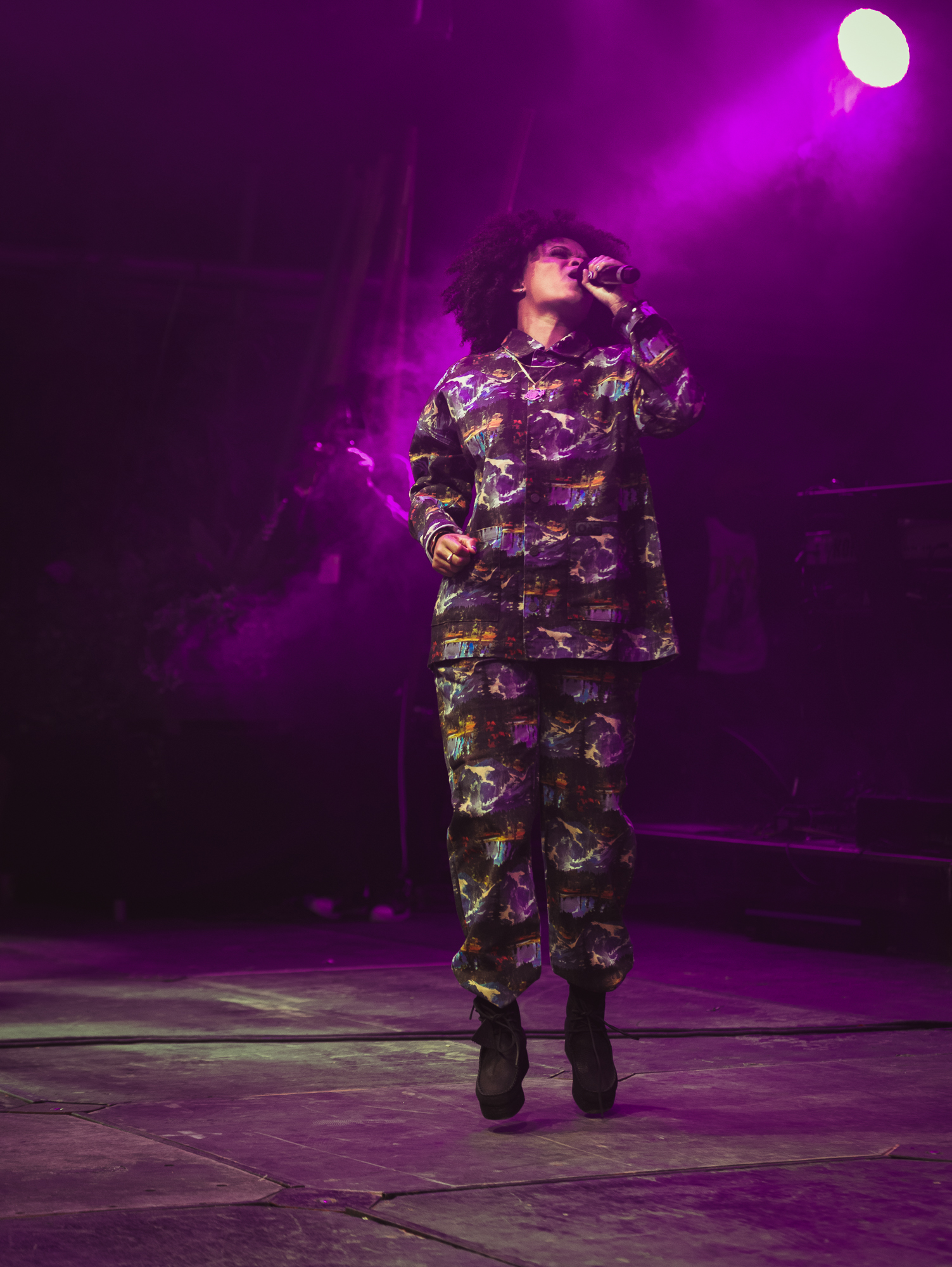
3) Getting crisp shots
In order to get the sharpest image possible at the long end, you want to keep your shutter speed as close to your focal length as possible. Select your focus point, lock onto your subject’s eye and learn to anticipate the artist’s movements. Pay attention to the edges of the frame, too, trying not to crop out guitar heads and human elbows.
Nigel’s advice for shooting live music
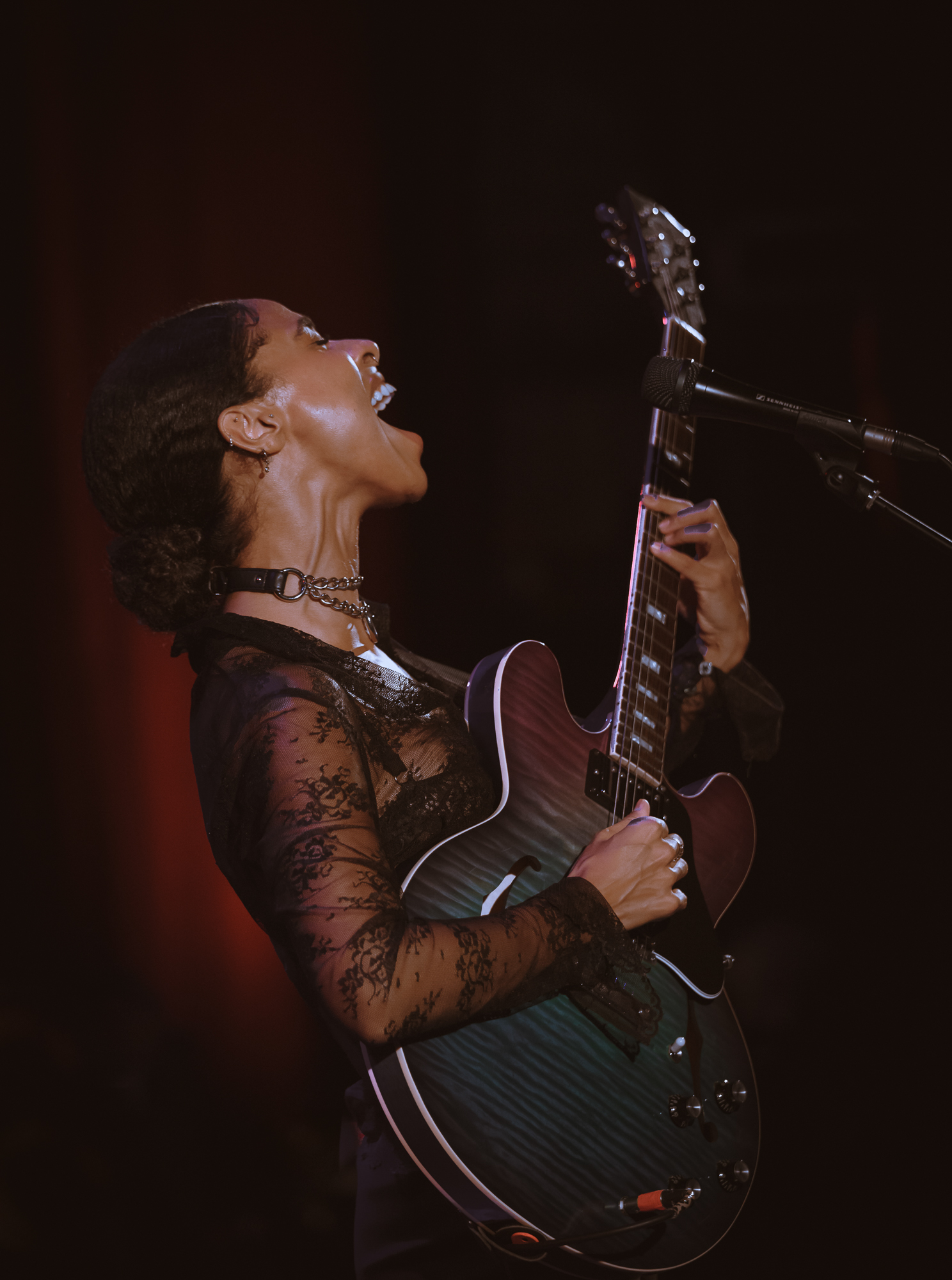
My grandfather’s camera started me off on my photography journey, and lockdown gave me the opportunity to practise. Initially putting pictures on Instagram was fun and I received some positive feedback, which led me to shoot a few events as an assistant. I always wanted to do portraiture and products, as that’s what I found most appealing.
Once live music events returned a bit, I went to a few shows, took my camera and snapped a few pictures that were used by the venue and record label. I decided that I might be able to combine my two worlds and contacted a few musician mates, asking if I could shoot their shows. I then spent some time adapting the studio and night skills I had learned, and applied them to live music.
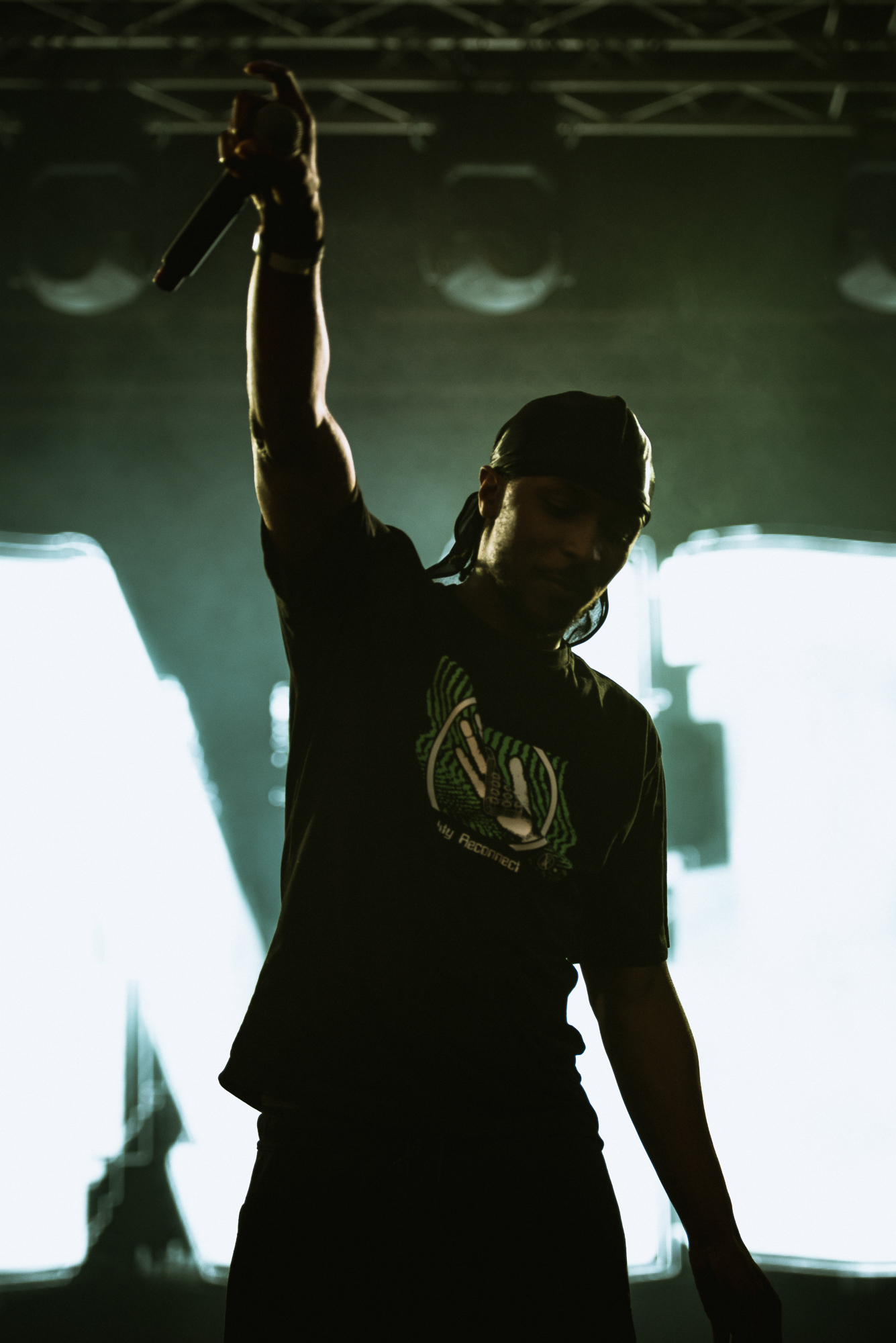
Capturing the moment
Discovering how the old masters’ chiaroscuro approach applies to my style of photography was a turning point: most of my imagery has a dark and moody vibe to it, with just pockets of light, and it certainly works in a music setting. I’ve been lucky enough to shoot some great shows with fantastic lighting designers. Having seen thousands of shows over the years helps me to anticipate the artists’ movements.
I don’t have the newest, fanciest cameras but some of the most iconic photographs were shot on film, so I try to shoot in the same vein. I try to anticipate the shot I want to take before I press the shutter, and read the stage to see where and when it might occur. I will fire off three or four shots just in case my focus slips.
For more of Nigel's work see his Instagram feed.
Read more:
Best Pentax K-1 Mark II deals
Best Pentax lenses
Pentax K-1 Mark II review
Get the Digital Camera World Newsletter
The best camera deals, reviews, product advice, and unmissable photography news, direct to your inbox!
Digital Camera World is one of the leading authorities on camera and photography news, reviews, techniques, tutorials, comparisons, deals and industry analysis. The site doesn't just specialize in cameras, but all aspects of photography, videography and imaging – including camera phones, gimbals, lenses, lighting, editing software, filters, tripods, laptops, printers, photo books, desks, binoculars and more.
Whether you're using, looking to buy or trying to get the most out of a compact camera, action camera, camera drone, cinema camera, beginner camera or professional camera, Digital Camera World has a roster of experts with combined experience of over 100 years when it comes to cameras, photography and imaging.

